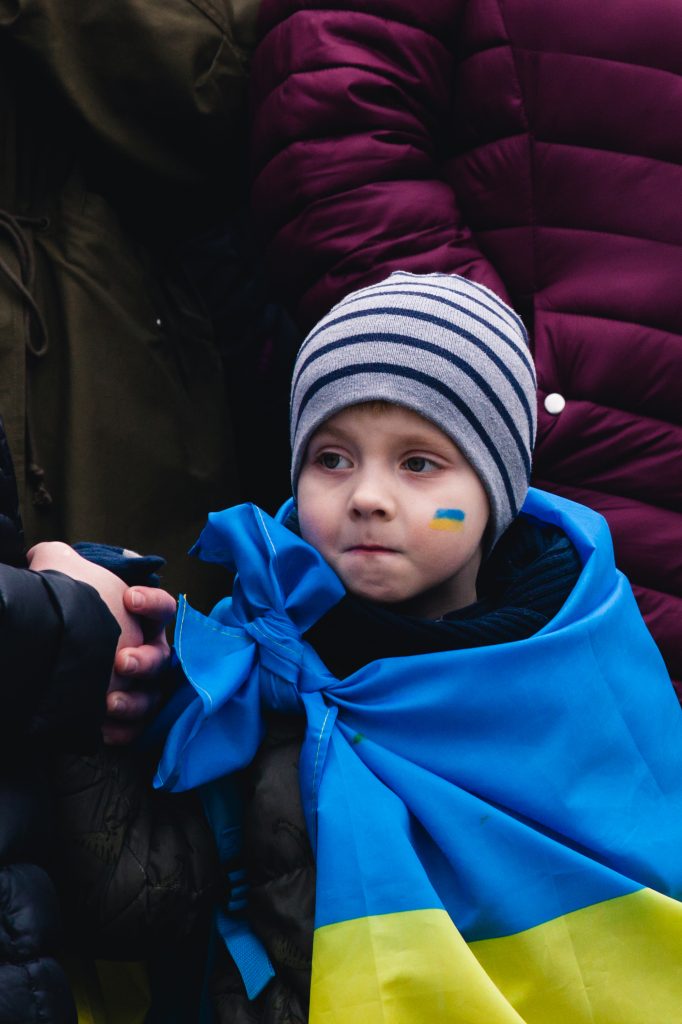Brussels — “Dream of visiting opera again!” — with this slogan, the Royal Theatre of La Monnaie presented its programme for the 2022-23 season. The repertoire includes many Russian works: “Eugene Onegin” and “The Queen of Spades” by Tchaikovsky, “The Nose” by Shostakovich. The theatre explained its choice by comparing Russia’s bloody attack on Ukraine to… Great Britain’s withdrawal from the EU.
“Just like two years ago, when, in the midst of Brexit, we realised that we had a very British repertoire, we are now offering a completely unplanned 2022-23 season, in which there is a noticeable share of Russian works,” reads the official address of Peter de Caluwe, general manager of La Monnaie, to the audience on the theatre’s website.
This text was there for almost half a year: from the spring of 2022, when military operations were in full swing, to the rally of Ukrainians near the Belgian opera house in September. Activists laid out the word “children” under the theater with candles to remind about the Mariupol Drama Theatre. Despite this warning written in capital letters, the theatre was attacked by Russian aircraft. The rally participants handed out leaflets explaining the essence of Russian culture to the audience who came to “The Queen of Spades”.
“I was standing on the steps of the theatre handing out leaflets and noticed my former colleague. She pretended not to see me,” said Artem Shostak, a volunteer of NGO “Promote Ukraine”, which organised the rally, “ I gave her a leaflet, saying, ‘Take a program.’ She said hello and clearly felt awkward.”
Artem said jokingly that they had an “action” and suggested that his colleague read how Russia uses its cultural heritage for manipulation.
“We support Ukraine, but this is just opera,” she excused herself.
The management of the Belgian Royal Theatre of La Monnaie has a similar position and did its best to avoid this rally. The news that the activists will hold a rally spread through the Belgian mass media along with Promote Ukraine’s open letter.
The author of the letter was Belgian cultural expert Bert Gavel. Ukrainian activists tried to involve local people in the campaign to reach the Belgian audience as much as possible.
“Rather than being an abstract conflict between states, what is happening in Ukraine now is the culmination of a decades long campaign waged on the political and cultural front to negate Ukrainian nationhood by, among other things, positing Russian culture as a Slavic standard and denying the existence of Ukraine as an autonomous cultural space,” reads Promote Ukraine’s letter.
The theatre management removed its controversial statement about the new season from the website and, ahead of the rally, invited the activists for a conversation to ask them to cancel the protest.
Promote Ukraine representatives came to a meeting together with Bert Gavel, the author of the open letter, and the Ukrainian writer Haska Shyyan, who moved to Brussels shortly before the large-scale war. Together, they managed to change the theatre management’s view on the situation.
“The letter helped them see the contradictions in their intellectual arguments. In addition, the composition of the group was important: Ukrainian activists living in Belgium, as well as artists, came. And most importantly, they absolutely did not realise how their actions and words could easily be used by Russian propaganda as a weapon against the West,” says Bert Gavel, talking about the negotiations.
Activists offered the theatre a solution: to show the cultural buildings destroyed by the Russians just on the walls of the opera house. For example, to use light projection to demonstrate what happened after the Russians bombed the Mariupol Drama Theatre.
And the Royal Theatre agreed. Although it was technically not possible to make the projection, a huge banner with the image of the Mariupol theatre was placed on the facade.

And instead of the posters of Russian “The Queen of Spades” and “Eugene Onegin”, expressive “Postcards from Ukraine” from the Ukrainian Institute appeared. They depict Ukrainian cultural institutions: before the war and after the Russian strikes.
Promote Ukraine activist Yana Brovdiy believes that it is possible and necessary to change Europeans’ views on Russian culture, although it requires a lot of effort and work: “We would all like it not to take so much time and Russian cultural content to be canceled already now in all EU countries. But in reality, as experience shows, this is a long process, and we need to constantly explain why it is wrong to show Russian culture – even if it is a classic works – during the war, aggression, and genocide of Russia against Ukraine. We hope that we will also win in this struggle in the cultural sphere.”
Source: RFI






 UA
UA FR
FR DE
DE




